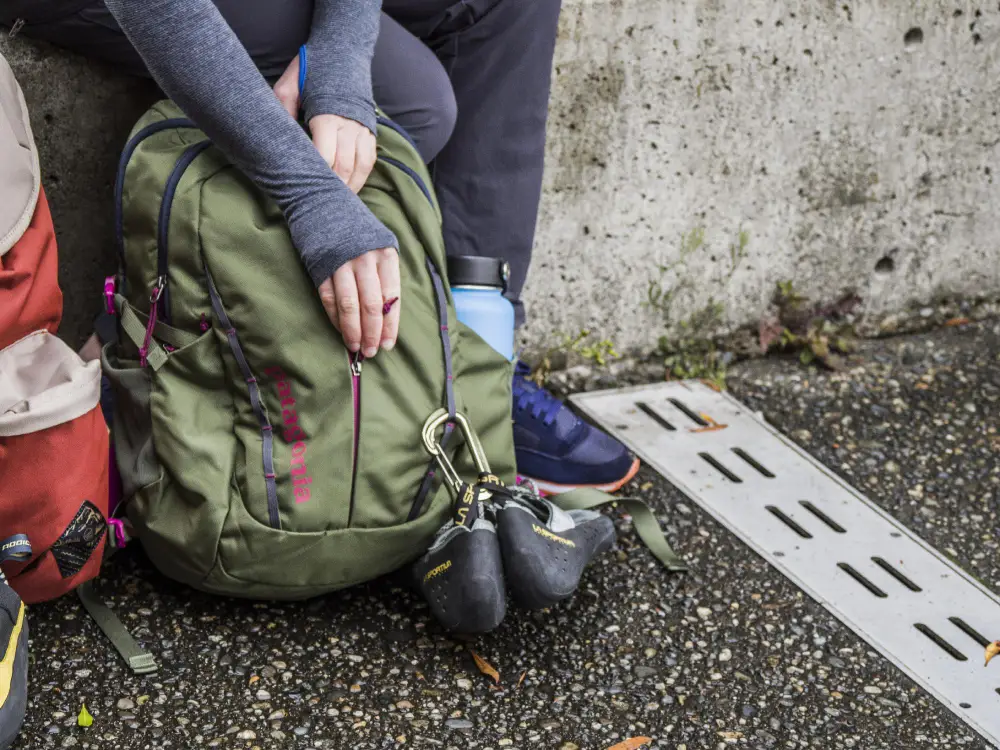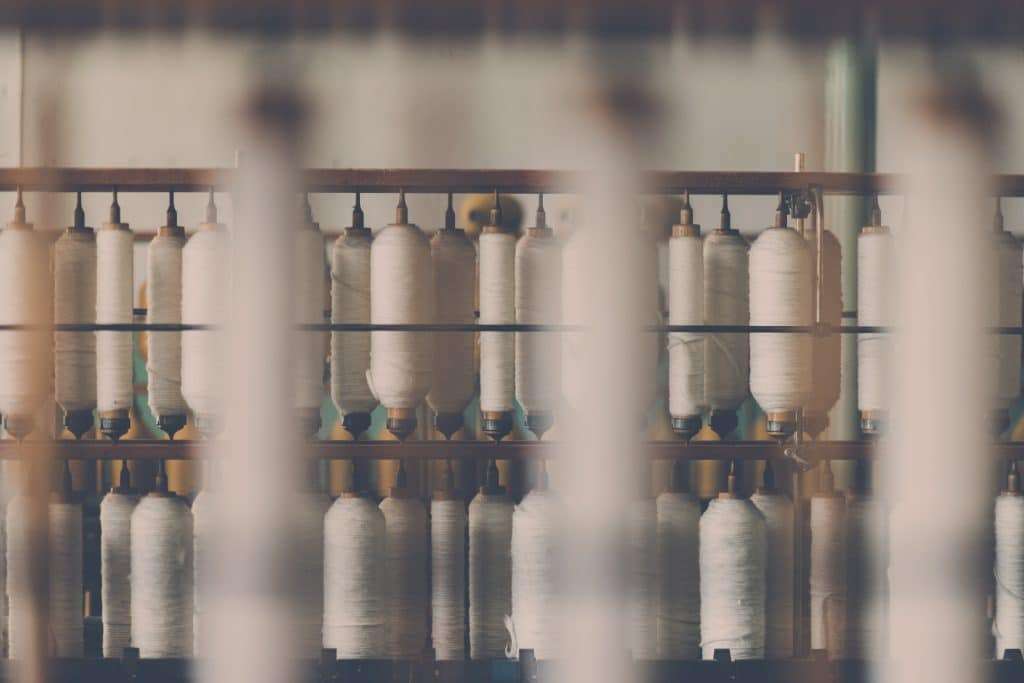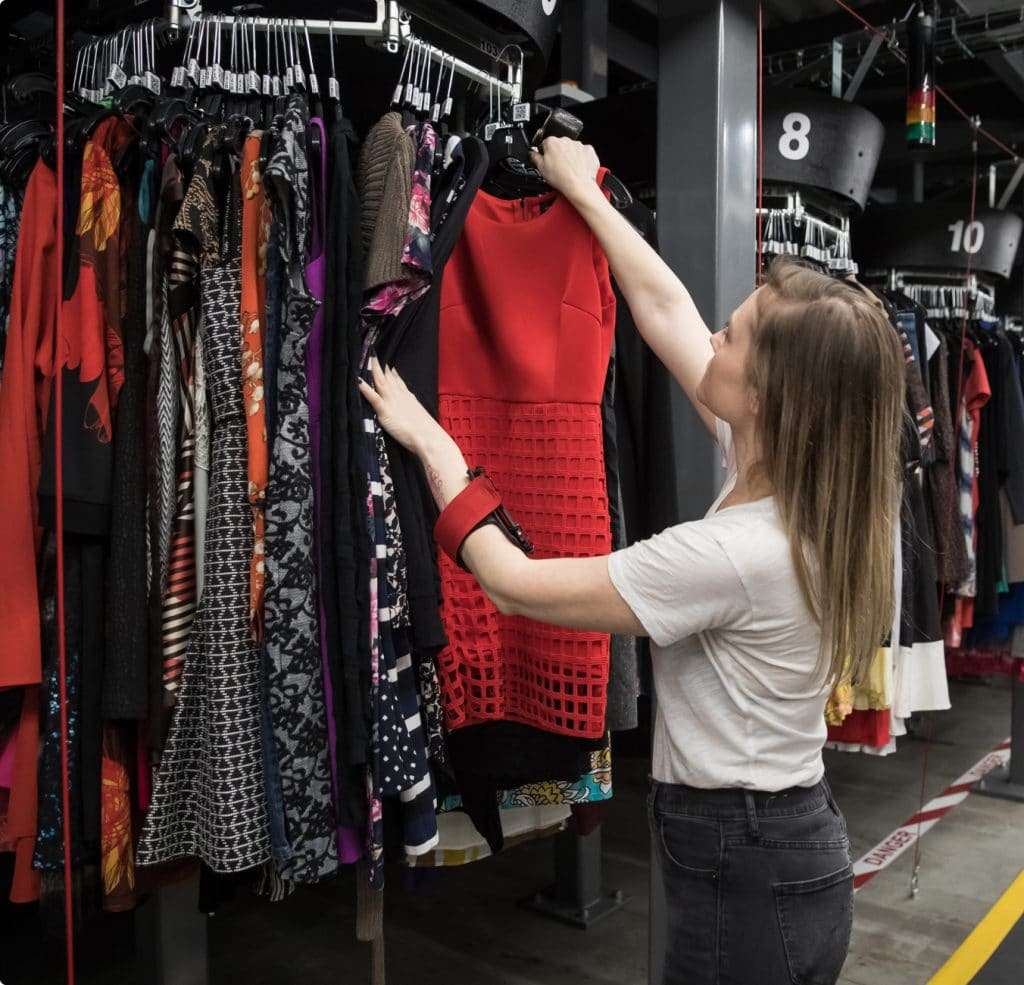France will start paying citizens to have clothing mended, and outdoor brand Patagonia is increasing consumer access to repair services. But is it enough to make a dent in fashion’s waste problem?
Last October, French consumers who chose to have their apparel and footwear mended instead of disposing of them, became eligible for a government-issued reimbursement. France’s government announced the financial incentive in an effort to stimulate repairs on clothes and shoes, a strategy aimed at reducing waste and promoting sustainable habits, according to Berangere Couillard, the Secretary of State for Ecology.
In an address at the Paris headquarters of La Caserne, a responsible fashion hub, Couillard encouraged sewing workshops and shoemakers to align with the scheme. The eco-organization Refashion will grant accreditation to those participating.

More than 700,000 tons of clothes are discarded annually in France, with approximately two-thirds winding up in landfills, the government says. Repairing clothing and shoes not only reduces the amount of clothing waste, but also helps reduce new purchases, which also contribute to global warming, resource depletion, and deforestation, among other issues. The funding structure facilitates claims ranging from seven euros for a heel fix, and up to 10-25 euros for clothing mends, with a 154-million-euro fund allocated through 2028.
Refashion’s data revealed that in 2022 alone, the French market witnessed the sale of 3.3 billion textile items ranging from clothes and shoes to household linens. The government has tasked Refashion to direct the fashion industry towards sustainability. Couillard clarified that the primary objective of this effort is to bolster those who perform the repairs, including sewing workshops and brands that provide repair services.
This assistance program for repairs draws inspiration from the household appliance repair bonus and marks another step in the large-scale transformation of the textile sector undertaken by the French government since 2022. The reforms aim to impose more accountability on brands and offer financial backing to establishments that focus on recycling and reusing clothes, addressing the notorious reputation of the textile sector as one of the world’s major polluters.
Patagonia’s 24-hour repair service
Leading outdoor clothing and gear brand Patagonia has also announced it’s ticking up its repair efforts with a 24-hour repair request service aimed at encouraging customers to repair items instead of discarding them. The U.S.-based company is also expanding its European repair services, bringing repair tools and services to stores with the ambition of increasing repairs fourfold to 100,000 per year over the next five years.
The brand has long been an advocate for extending the lifespan of clothing for the past 12 years through its Worn Wear program and its “Don’t Buy This Jacket” campaign which was introduced in 2011. The campaign’s primary message asked consumers to ponder the environmental repercussions before making new purchases.

Last year, Patagonia joined forces with Makers Unite and the Amsterdam Economic Board to establish the United Repair Centre (URC). This repair service trains and provides secure employment to skilled garment makers — particularly those who face employment barriers, such as newly arrived refugees in the Netherlands.
The URC has now relocated to a larger Amsterdam-based facility due to increased demand and has forged repair contracts with other brands, including Decathlon. Plans are also underway for the URC to expand to the U.K. in 2023, with more European locations to follow.
“We need a new, regenerative model and structural change if we are to stand any chance of cleaning up the dirty industry of apparel,” Patagonia EMEA’s Director of Finance and Operations, Willem Swager, said in a statement. He encouraged brands to shift from focusing solely on selling new items to promoting reuse and longer product life through repair.

Every year, an estimated 92 million tons of textile waste are generated worldwide. A significant portion of this waste, about 73 percent, or 67 million tons, ends up in landfills or incinerated.
In landfills, these textiles can take up to 200 years to decompose, during which they release potent greenhouse gases including methane, which traps more heat than C02. The fashion industry is responsible for about ten percent of total global emissions — more than the aviation and maritime industries combined. Discarded textiles also leach chemicals and dyes into the soil and groundwater. When incinerated, textiles release CO2 and other pollutants into the atmosphere.
Recycling in the U.K.
Following the announcements by France and Patagonia, the U.K. is launching a program aimed at making use of items that can’t be repaired by reducing end-of-life polyester textile waste through novel recycling technology.
The new initiative, named Project Re:claim, is the result of a partnership between corporate apparel expert Project Plan B and the Salvation Army Trading Company Ltd. It will be unveiled at the Source Fashion event taking place in London next week.

“The fashion industry is increasingly embracing second life, reuse, recycling, and circular economy practices, but polyester recycling has remained one of the biggest challenges in recycling post-consumer clothing,” Suzanne Ellingham, Source Fashion’s Director of Sourcing, said in a statement. “We are very excited to offer SATCoL a global platform for Source Fashion to launch Project Re:claim’s new technology.”
The new facility anticipates recycling 2,500 tons in its initial year and increasing to 5,000 tons in year two. The focus is on recycling polyester materials that have exhausted their lifespan, turning them into polyester pellets. SATCoL will implement the system to recycle materials on-site that are unfit to be sold.
Related on Ethos:


